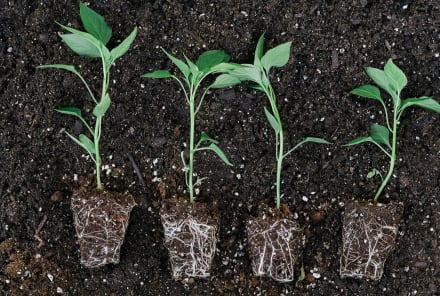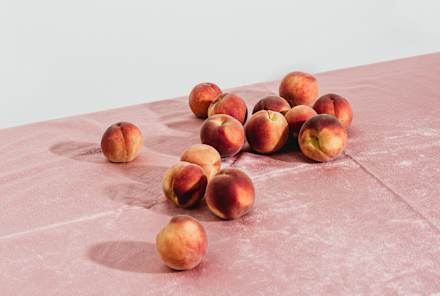Advertisement
A Climate Scientist On Staying Hopeful & Engaged With The Environmental Movement


To start rewriting the current story of exploitation toward regeneration, we can look for wisdom from both the past and the future.
At the U.N. climate negotiations in Bonn in 2017, a young Maori woman told me, "The person I want to be is someone my ancestors would be proud of." She saw her own story as connected to both a past and a future filled with people she cared about. The author Bina Venkataraman suggests being a good ancestor requires imagining the future with empathy, listening to the voices of the future, and leaving heirlooms for future generations to steward.
Being a good ancestor.
To become good ancestors, we can and must overcome the human tendency toward present bias favoring short-term gratification.
Hal Hershfield, a marketing professor, believes present bias is caused by being "estranged" from and failing to empathize with our future selves, making saving feel "like a choice between spending money today or giving it to a stranger years from now." But he found he could induce people to act1 today more in the interest of the future. When college students saw "aged avatars" of themselves in a mirror, digitally manipulated to age 50 years, they saved more than twice as much toward retirement as those who did not.
Climate campaigns are increasingly tapping into ways to empathize with and imagine the future. For example, activists from Sunrise Movement dedicated climate time capsules in state capitals across the United States in November 2017, to be opened in 50 or 100 years.
They invited citizens to contribute "things we love and are fighting to protect" and "letters to the future"; politicians to contribute their commitments to clean energy and stopping fossil fuel development ("Those who don't will be remembered for their cowardice"); and the press to submit their coverage of climate action ("If they don't, we will leave a record of their inaction in the time capsule").
These kinds of gifts to the future hold us accountable for our actions now and force us to look beyond the next few years in office, toward our long-term impacts.
Another project that lifts our sights to the horizon is Future Library, which is collecting one unpublished manuscript each year over 100 years. Authors to date include Margaret Atwood and Han Kang. The stories will be held in trust, unread, until they are released in an anthology in 2114.
The paper on which they will be printed will come from 1,000 towering Norwegian spruce trees, which were planted outside Oslo as tiny saplings in 2014. Those trees will absorb the atmosphere of the sky we make and that our children and grandchildren make. The texture of the paper that the Future Library is printed on will reflect our choices.
The Future Library is the opposite of instant gratification or even delayed gratification; it is, rather, gratification that comes from slowness and waiting, from living today in a way that acknowledges how much the future depends on us. We who happen to be alive at this moment are writing history for so many for such a long time to come. The Future Library pushes us to write a better story.
Forget future generations.
For guidance from the future, we don't have to imagine what hypothetical descendants would want; we can instead listen to the rising chorus of living, breathing young people today, clamoring for their right to a stable climate and therefore a hopeful future for themselves and for future generations.
There is no shortage of brilliant, creative, and hardworking young people to listen to. In Paris for the 2015 climate summit, I met a 10-year-old girl boarding the train with her mom. She was carrying a colorful paper gingerbread person as big as she was. "I'm not allowed in the conference," she told me. "So I've made these kid-size dolls to hang around the halls, to remind the negotiators our future depends on them, and we're watching."
We can listen to young people like Lillian, a clear-eyed 12-year-old from Minnesota who interviewed me for her language arts project on climate change. She told me she had focused on climate because "I made a list of all the things that are wrong with the world. I realized that none of them matter if we don't have a planet. How do I make old people care about climate change?"
Lillian has more power than she may realize, including through sharing her concerns with the adults around her. A study led by Danielle Lawson2 showed that 10- to 14-year-olds who learned about climate change and shared their concerns increased their parents' concern. This was especially the case for daughters. Conservative men were typically the least concerned, and the most resistant group to climate change communication, but they showed the biggest increase in climate concern after listening to their kids. The researchers believe that high levels of parent-child trust, and the children's lack of entrenched political ideology, helped them achieve influence.
Youth is the only universal constituency: Everyone is, or was, a kid. Yet kids can't vote. In 2019, 11-year-old Lilly Platt requested that her grandfather cast his vote for the E.U. parliamentary elections according to her wishes that politicians follow the Paris Agreement. He agreed, saying, "Any vote that I make, I don't have to live with the consequences of. You do." Adults can learn a great deal from listening to children with humility.
We can listen to the millions of young people on climate strike in the streets and gathering online around the world, who demand and deserve a world that stops global warming. Their ask is that adults in power now listen to the information we already have from science and act accordingly to safeguard their future.
What is humanly possible?
Climate change is perhaps the most enormous opportunity to test our humanity. Preventing climate breakdown is at the absolute outer limits of what we might just be capable of. It requires us to rewrite our idea of who we are, the language and concepts and traditions we use to braid our identities and cultures together. It requires us to redefine, and then remake, what is humanly possible: what humans are capable of making possible.
I am convinced that now is the most interesting time to be alive. Whether by divine plan or blind chance, it is each and every one of us alive today who happen to be the cast for a decisive moment in human history. Like all generations before us, the impacts of our decisions stretch across space and time in ways we cannot fathom, but we have an unprecedented level of power. Our decisions affect not only ourselves and our families, not only human civilization around the world, today and for millenniums to come, but the very preconditions for human civilization: whether, when, and how much rain falls; if crops ripen, or wither and die.
Look around you: your family and neighbors, your co-workers and classmates, leaders at all levels. This is the team. We are it. It's the next decade that's critical in setting the global thermostat, so the fate of the world is in the hands of those of us alive right now.
We have this awesome power and responsibility because we are the last stewards of humanity's nearly exhausted carbon budget. We don't have time to wait for someone else. We need to pull together, starting from where we are, cultivating the best of our humanity in this time of crisis and using it to build and strengthen our individual and collective capacity to do the essential work of regeneration.
Excerpted from Under the Sky We Make: How To Be Human in a Warming World by Kimberly Nicholas, Ph.D., with permission from the publisher.











